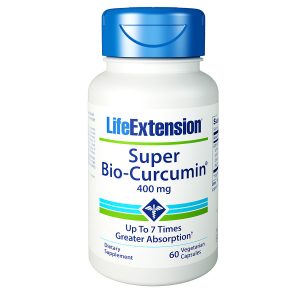A recent health and wellness study conducted by American sports scientists affiliated with prestigious Syracuse University have discovered that it’s possible to not only slow down the natural breakdown of muscular tissue with age – but actually improve the body’s ability to rebuild and regrow new muscle mass as we get older.

It’s long been considered a universal truth of physiology that the body loses its capabilities to produce lean muscle mass as we get older. On top of that, scientists understand that we also go through serious muscle atrophy and degradation as we start to accumulate more and more birthdays.
For a long time, science has been looking for a way to push back against this natural side effect of age. But until recently they have been stymied for the most part.
New research from these Syracuse University scientists suggest that regular supplementation with curcumin can work to inhibit the natural tendency of your body to decay muscle tissue over time. The findings are going to be published in an upcoming addition of the International Journal of Molecular Sciences, but already the scientific community is buzzing about the prospects of this report.
Working with a number of elderly laboratory rats (because rats have the same kind of muscular breakdown with age that humans have) the researchers huddled their test subjects into three distinct groups.
One group was given a control designation, receiving the standard food that these rats had been given throughout their entire lives with no new bioactive substances. They were also allowed and encouraged to eat as much as they wanted.
Another group was given the experimental designation and were given food that had been laced with curcumin, the rough equivalents of 150 mg a day if they had been humans. Because of the bitter taste of the added curcumin a lot of these rats weren’t eating as much as the Control group, so researchers decided to give the third group the same amount of food daily that the experimental group ate – rounding things out nicely.
After just four months of testing, the rats in the Experimental group were found to have between 13% and 40% more muscle mass and tissue than the rats in the Control and Pair group, respectively. Researchers believe that the curcumin was able to slow down decay by activating the NRF-2 gene in their bodies, working to manipulate the amount of antioxidants and anti-inflammatory biochemicals these rats released on their own.
By elevating these factors, curcumin worked to reduce both inflammation and oxidation of muscular tissue, showing that it might be possible to stem the tide of atrophy and muscular degeneration in people with the same approach – though more research is obviously necessary.
References:


